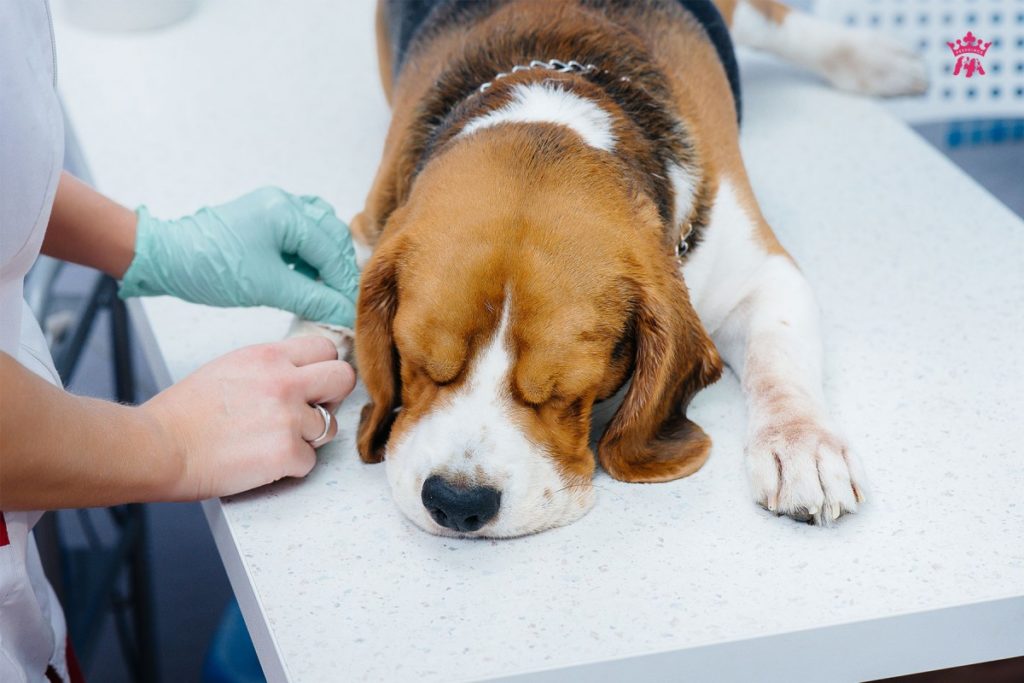As responsible dog owners, it is crucial to consider various factors when it comes to our furry friends’ reproductive health. Preventing pregnancy in dogs is a common concern, and there are safe and effective ways to achieve this. Whether you are looking to avoid an unwanted pregnancy or considering terminating a pregnancy, it is important to seek professional advice and assistance. This article will provide you with a comprehensive guide on how to prevent pregnancy in your dog, covering everything from symptoms and diagnosis to treatment options and post-abortion care.

Understanding Spontaneous Abortion in Dogs
Spontaneous abortions, also known as miscarriages, can occur in dogs due to various medical reasons. If your dog has experienced a spontaneous abortion, you may notice abnormal vaginal bleeding or the expulsion of a fetus. The most common cause of spontaneous abortion is fetal death caused by a hormonal imbalance. It is essential to monitor your dog closely for any signs of discomfort or health-related issues following a spontaneous abortion.
Recognizing Symptoms of Pregnancy in Dogs
If you suspect that your dog may be pregnant, it is important to be aware of the common symptoms. These include a change in appetite, weight gain, enlarged mammary glands, and behavioral changes. However, it is important to note that these symptoms can also be indicative of other health conditions. To confirm a pregnancy, an ultrasound examination can be conducted by a veterinarian.
Safe and Effective Pregnancy Prevention Options
To permanently prevent pregnancy in dogs, spaying, also known as ovariohysterectomy, is considered the best option. This surgical procedure involves the removal of the ovaries and uterus, eliminating the possibility of pregnancy. Spaying not only prevents unwanted pregnancies but also offers numerous health benefits to your dog, including the reduction of the risk of certain cancers and uterine infections.
Pregnancy Termination: Medical Alternatives

In certain situations, you may find yourself considering pregnancy termination for your dog. It is crucial to consult with a veterinarian to discuss the safest and most suitable options. Here are some common medical alternatives for pregnancy termination in dogs:
Injectable Estrogens
Injectable estrogens can be administered by a medical professional shortly after copulation to prevent pregnancy. However, it is important to consider potential side effects such as bone marrow suppression and pyometra, which is an infection of the uterus. Injectable estrogens should only be used under the guidance of a veterinarian.
Oral Estrogens
Oral estrogens are not recommended for pregnancy prevention in dogs as they are ineffective and may even lead to pyometra.
Prostaglandin F2 Alpha
Prostaglandin F2 alpha is a natural hormone that has shown to induce safe abortion in pets when monitored by a healthcare professional. Side effects are generally mild, if present at all, and may include panting, trembling, nausea, and diarrhea.
Dexamethasone
Dexamethasone can also be used to induce abortion in dogs. However, it is important to be aware of potential side effects such as panting, excessive drinking, and urination. This option should only be administered under the guidance of a veterinarian.
Post-Abortion Care and Monitoring

After a planned or spontaneous abortion, it is crucial to provide proper care and monitor your dog’s health closely. Following the procedure, your dog may experience discomfort, vaginal bleeding, or abnormal discharge. It is essential to observe any changes in behavior and seek veterinary attention if you notice any serious problems.
Debunking Myths: Postcoital Douches
Contrary to popular belief, postcoital douches are not effective in terminating unwanted pregnancies in pets. It is important to rely on safe and proven methods discussed with a veterinarian rather than attempting unverified methods that may harm your dog’s health.
Conclusion
Preventing pregnancy in dogs requires responsible pet ownership and consideration of your dog’s reproductive health. Whether you are looking to prevent an unwanted pregnancy or considering pregnancy termination, it is essential to consult with a veterinarian. Spaying is the most effective method for permanent pregnancy prevention, while medical alternatives such as injectable estrogens, prostaglandin F2 alpha, and dexamethasone can be utilized for pregnancy termination. Remember to provide post-abortion care and monitor your dog’s health closely. By taking these steps, you can ensure the well-being of your beloved canine companion.
